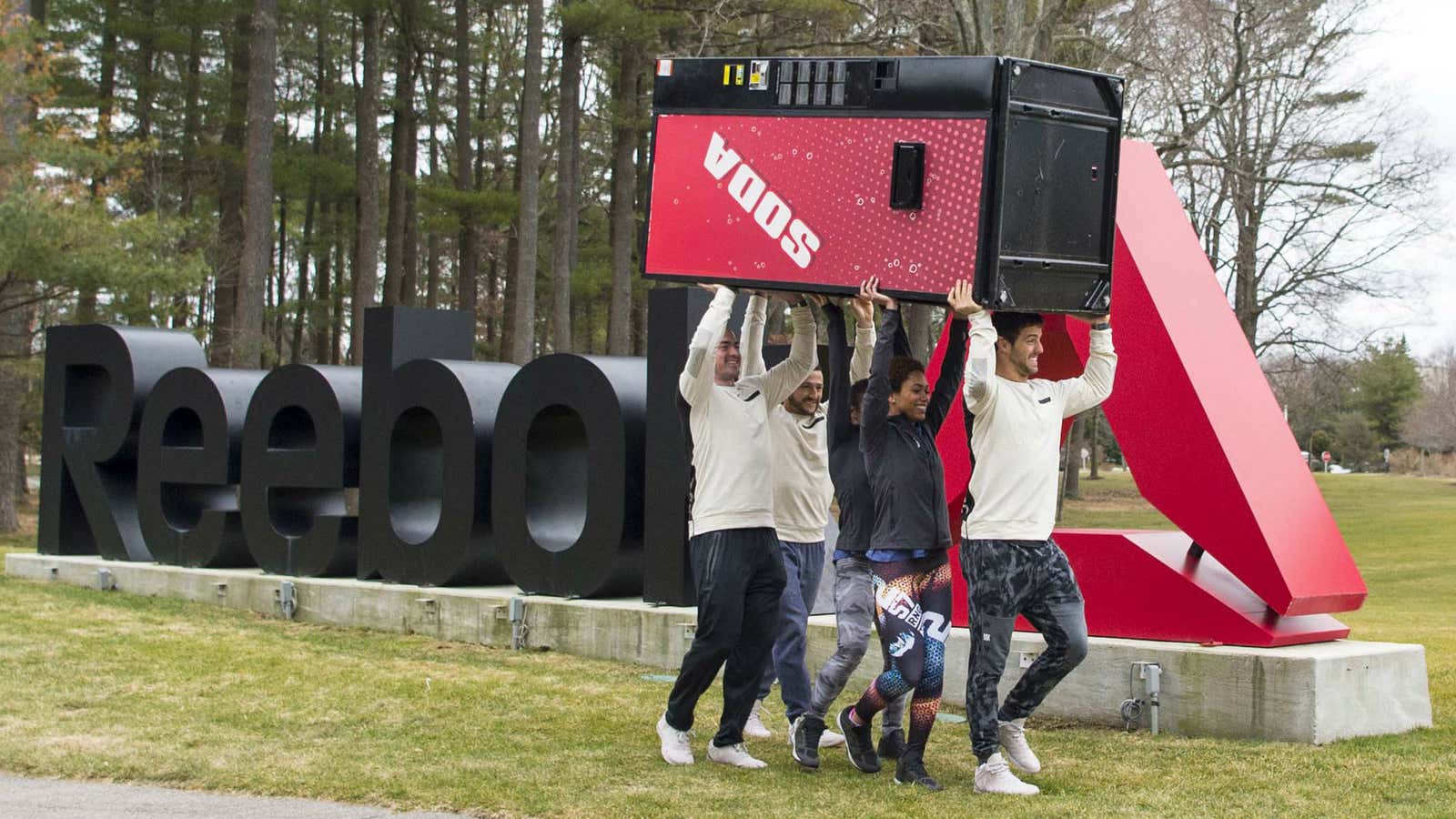Food on site is a big selling point for employers looking to reel in the best talent. Free snacks are great, but ramen noodles, fancy pastries, and grilled cheese sandwiches are even better.
Reebok, a company whose corporate image is built on fitness, is going another direction. The company in February began eliminating soda, beverages with added sugar, large candy bars, white bread, pasta, and fried foods from the employee cafeteria at its Canton, Massachusetts location, completing the transition last week. Now employees get vegetables, fruits and nuts, aka the kind of foods that actually promote health.
This wasn’t just a matter of replacing the contents of a vending machine—Reebok feeds over a thousand employees every day at its cafeteria, which isn’t free, but is subsidized by the company.
The move is part of Reebok’s attempt to stay true to its corporate image. ”We’ve been on a journey back to our own roots as a fitness brand,” Matt O’Toole, president of Reebok told Quartz in a phone interview last week. ”As we were bringing guests into the building, we weren’t feeling too good about what we had to offer in terms of food.”
Rebook also has encouraged employees to exercise more. At corporate headquarters, they have access to a three-floor gym, a Crossfit box, a soccer field, spin and yoga classes, as well as acupuncture.
Reebok worked with Sodexo, the foodservice company running its cafeteria and cafés, to align its menu with its brand. John Driscoll, district manager at Sodexo, says Reebok isn’t its only health-minded customer, but few decide to overhaul their food in just six weeks. ”We haven’t really done it where we’ve just eliminated things,” he tells Quartz.
Unsurprisingly, public health folks are ecstatic.”It’s terrific,” Michael Jacobson, president of Center for Science in the Public Interest, told Quartz. “I’ve never seen a private company take that kind of action so I hope it sets an example for other companies, starting with companies that have some relationship with health.”
Other proponents of healthy diets are urging more companies as well as hospitals to follow suit.
At Reebok, says O’Toole, the support is not universal. Most resistance, he says, is around soda, and he himself is missing his morning bagel. Driscoll says they’ve seen a “slight drop off in sales.”
The most opposition is coming from what O’Toole describes as a “libertarian” perspective. ”‘If I want to put x, y, and z in my body,'” O’Toole says some employees are complaining, ” ‘I should be able to.’ On some level, I agree with that—but we’re not going to provide it to you.”
